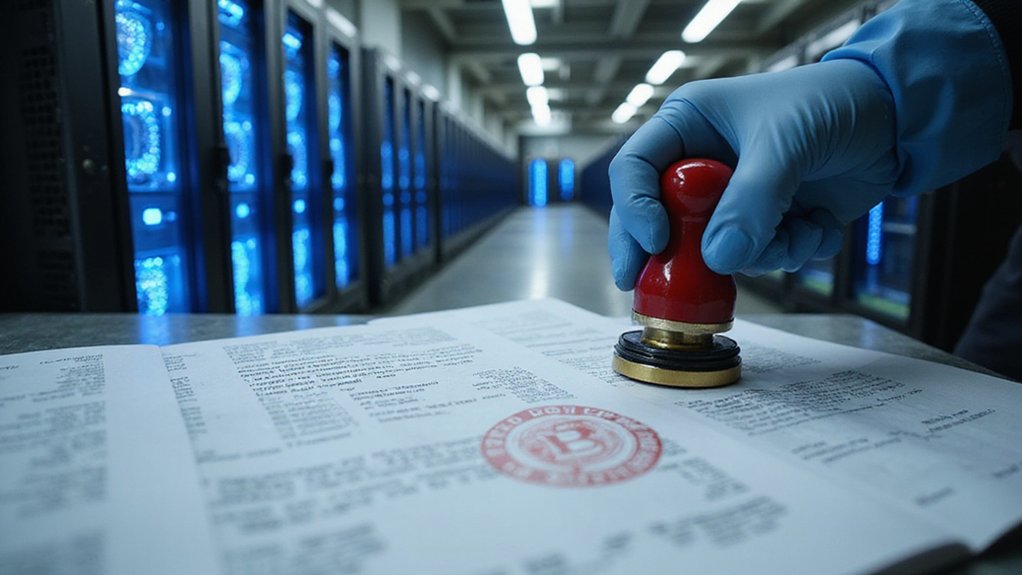Russia has officially tightened its regulatory stranglehold on cryptocurrency mining operations with the July 7, 2025 launch of a national registry for mining equipment—a move that transforms what was once a digital Wild West into a meticulously cataloged bureaucratic enterprise.
The Ministry of Energy‘s centralized database represents a thorough effort to track every mining rig across the nation, demanding serial numbers, device models, and operational details from miners who previously operated in regulatory shadows.
This registry emerges as Moscow’s response to rampant illegal mining activities that have hemorrhaged state resources through unauthorized electricity consumption and systematic tax evasion. The scale of abuse became evident when authorities shuttered operations like the Sayansk mining farm, where 240 rigs consumed electricity equivalent to powering 2,000 apartments—a breathtaking example of how crypto mining’s energy appetite can dwarf entire residential districts.
The initiative involves an unprecedented collaboration between the Ministry of Energy, Federal Tax Service, and Ministry of Digital Development, creating a regulatory triumvirate focused on legitimizing an industry that has operated largely beyond governmental oversight.
Deputy Minister Petr Konyushenko emphasized the necessity of combating energy consumption losses, though the registry’s effectiveness remains questionable given the inherent challenges of monitoring decentralized operations.
Perhaps most intriguingly, officials are considering an “amnesty” program for miners using black-market equipment—essentially inviting underground operators to voluntarily surface and register their illicit hardware. This carrot-and-stick approach reflects Russia‘s pragmatic recognition that heavy-handed enforcement alone cannot address the scope of unregistered mining operations proliferating across industrial zones and residential areas.
Russia’s proposed amnesty for illegal mining equipment reveals Moscow’s calculated pragmatism in legitimizing a sprawling underground industry.
The registry aligns with Russia’s 2024 cryptocurrency mining legalization law, creating a framework for special taxation regimes based on accurate energy consumption data.
However, skepticism persists among lawmakers like Anton Gorelkin, who questions whether bureaucratic registration can effectively combat determined illegal miners operating with subsidized residential power connections.
Russia’s regulatory crackdown comes as global legal restrictions on mining operations create an increasingly complex patchwork of governmental oversight across different jurisdictions.
Ultimately, this registry represents Moscow’s attempt to transform cryptocurrency mining from an anarchic energy drain into a properly taxed, regulated industry—though whether digital prospectors will willingly submit to such thorough governmental oversight remains the fundamental question underlying this ambitious regulatory experiment.









